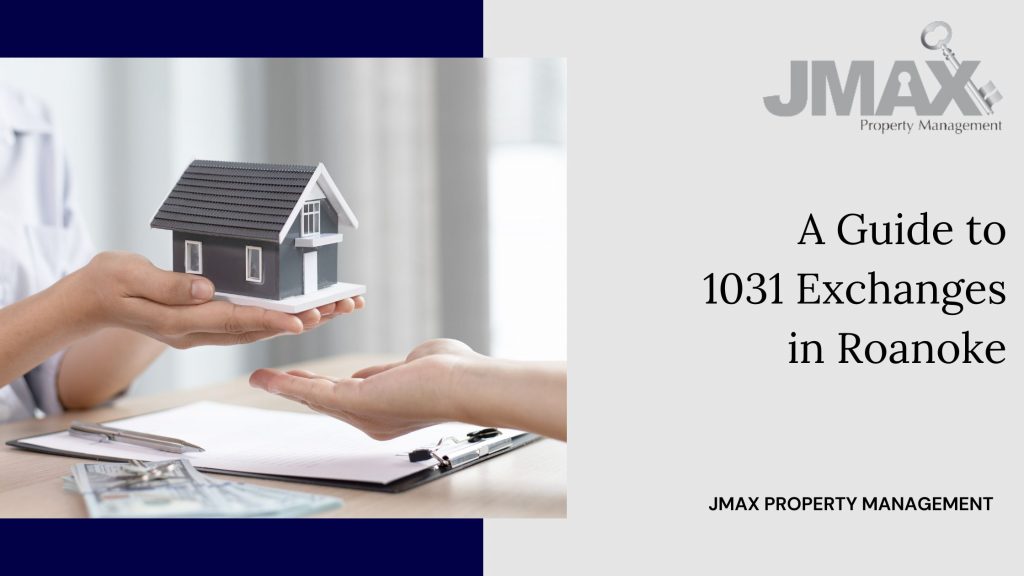
Are you a rental or business property owner in Roanoke looking for ways to simplify your taxes? If done right, a 1031 exchange may help to defer some of these costs.
A 1031 exchange is a way to avoid capital gains taxes when you sell a rental property. This method allows a property owner to replace one property with a different, like-kind one and avoid the capital gains tax on the sale.
The Internal Revenue Service’s rules must be meticulously followed for you to experience the benefits of this method, but overall it is a wise and effective tax strategy. When the state and federal taxes combine, they can be as high as 15%-30%, so it is always a good idea to look into a 1031 exchange if possible.
Below, we have provided some information to help you learn more about the history of 1031 exchanges, how to qualify for one, how to navigate the deadlines, and more.
If all the rules are followed, this practice can be incredibly valuable to your business and your rental properties.
The History of the 1031 Exchange
The 1031 exchange’s name refers to Section 1031 of the Internal Revenue Code. After several court decisions giving rental and business property owners more options when it came to the exchanging of property, Congress allowed changes to Section 1031 in the Tax Reform Act of 1984.
This ruling specified what was considered a “like-kind” property and set rules for the timeline of an exchange.

How to Qualify for a 1031 Exchange
Only properties owned for investment or business purposes will qualify for a 1031 exchange. In Roanoke, a personal home will not qualify, and generally neither will a fix-and-flip project.
Second or vacation homes also generally will not qualify, but certain exceptions can be made if it is being used for rental or business purposes at any point. If possible, consider speaking with a tax expert to find out if your second or vacation home can qualify for a 1031 exchange.
There are a few things needed for a transaction to qualify for a 1031 exchange. First, the transaction needs to happen as an “exchange,” rather than just selling a property and purchasing another one immediately after.
Additionally, the property that is being sold and the new property need to both be used for investment or business purposes. It is essential that both properties are like-kind.
Further, land that is in the process of being developed for resale cannot qualify for any tax-deferring benefits. Bonds, stocks, notes, and beneficial interests also cannot be considered a form of a “like-kind” property, and cannot be exchanged as such.
Here are some examples of property exchanges that may qualify for a 1031 exchange:
- An office building in exchange for a shopping mall
- A ranch or a farm in exchange for an industrial building
- An apartment building in exchange for an office building
Purchase Deadlines
There can be strict deadlines when it comes to qualifying for a 1031 exchange.
When a property owner wishes to present an exchange, they will market their property in the usual manner. When presented with a buyer for their property, a purchase contract is created.
Then, the seller of the property will enter an exchange agreement with a qualified intermediary. The intermediary will become the substitute seller. When the closing takes place, the property seller cannot touch the money, so the substitute seller/intermediary will receive the funds that are due to the seller.
This is when the deadlines come in.
Within 45 days of the closing on the initial property, the seller must either close on or specify in writing a potential replacement property. The IRS is very strict, thus making this deadline non-negotiable, and it includes weekends and holidays.
If the seller misses the deadline, the entire exchange is disqualified and taxes will be charged.

Identifying Properties
The seller is allowed to identify three properties regardless of their fair market value, or they can identify a larger number of properties as long as their combined market value at the end of the identification process is no larger than 200% of the value of the property they are exchanging.
Avoiding “Boot”
Most property owners engaging in a 1031 exchange will follow the 3 property rule so they can select the best property for their business needs and will be most successful. Generally, the goal for any seller is to trade up and avoid the transfer of “boot” while keeping the entire exchange tax free.
“Boot” refers to funds coming from any non-like-kind property that the seller receives during the exchange. Boot can be in the form of cash, debt reduction, or costs related to the closing of the deal that are not considered valid.
The rules around “boot” are complex and can be confusing, however without the advice from an expert, a property seller can end up unintentionally receiving boot and owing taxes.
Purchasing the Replacement Property
Once the investor selects a replacement property for their exchange, they will have 180 days from the time of selling their initial property to close on the new property. However, if the property investor’s tax return due date for that year is earlier than the end of the 180-day period, then the exchange must be completed by the earlier deadline.
Due to the lack of exceptions or extensions in this rule, it is always a good idea to schedule the closing of your new property prior to the deadline.
Additionally, the law requires that the seller not touch the funds earned from the first transaction. This means that intermediary will need to acquire the replacement property at closing, and then transfer it to the buyer after the transaction is closed.

Bottom Line
A 1031 exchange can help you avoid capital gains taxes when you sell a rental property.
If you are interested in learning more about how to conduct a 1031 exchange, contacting a tax professional or a knowledgeable property manager can be beneficial.
JMAX Property Management is located in Roanoke and is always available to answer any questions you may have. Contact us today!


